Abstract
OBJECTIVES: This study examined the relationship of sociodemographic factors and use of substances other than cocaine to cocaine use from 1987 to 1992 in a cohort of Black and White men and women 20 to 32 years of age. METHODS: Data were collected as part of the Coronary Artery Risk Development in Young Adults study. Self-reported cocaine use was analyzed through chi-square tests and repeated measures analyses of variance to determine the bivariate and multivariate relationships of sociodemographics and substance use behaviors to cocaine use over the 5-year period. RESULTS: Cocaine use declined in Whites but remained stable in Blacks from 1987 to 1992. Cross-sectional results showed that use was related to being Black, male and in the older half of the cohort, single, and unemployed; it was also related to higher levels of other substance use in 1987 and 1992. Over time, the magnitude and strength of the relationship were consistent for each variable except for increased odds of cocaine use among the unemployed and Blacks in 1992. CONCLUSIONS: Sociodemographic characteristics and substance use behavior consistently identify individuals at risk for cocaine use. As a result, intervention programs should be targeted at these high-risk groups.
Full text
PDF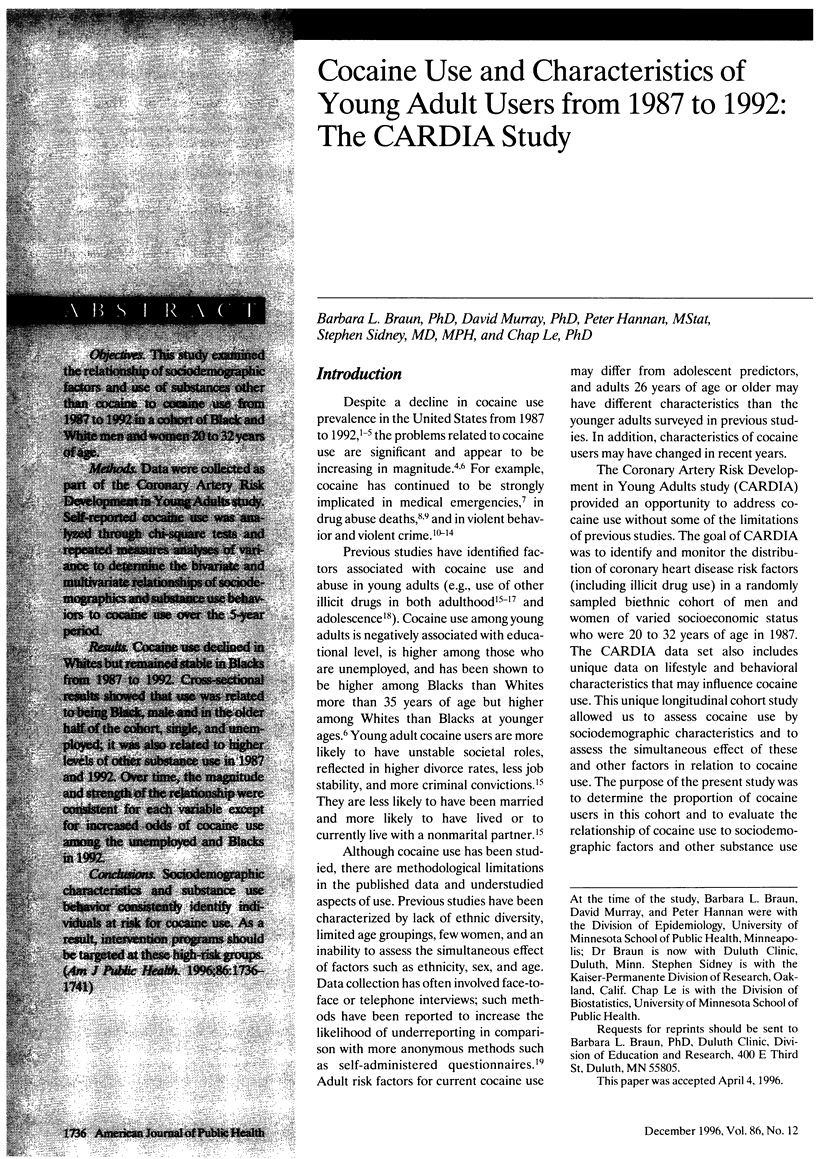
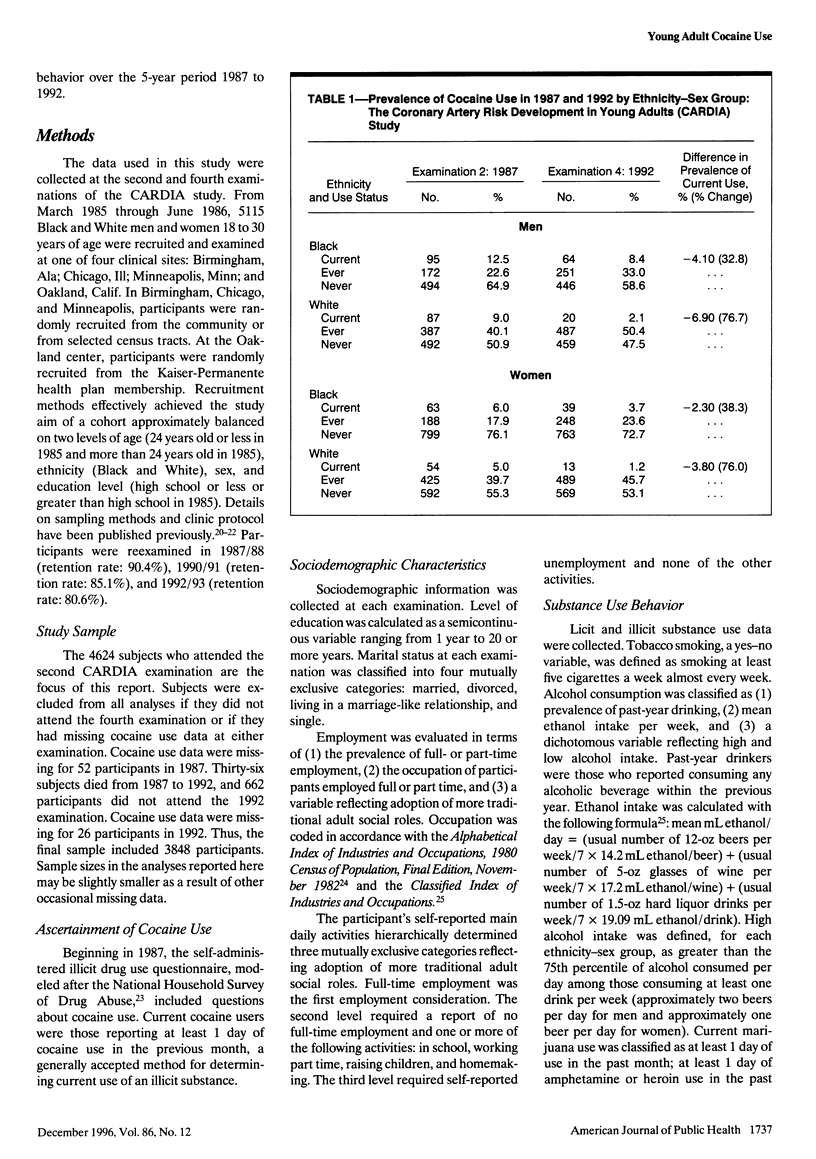
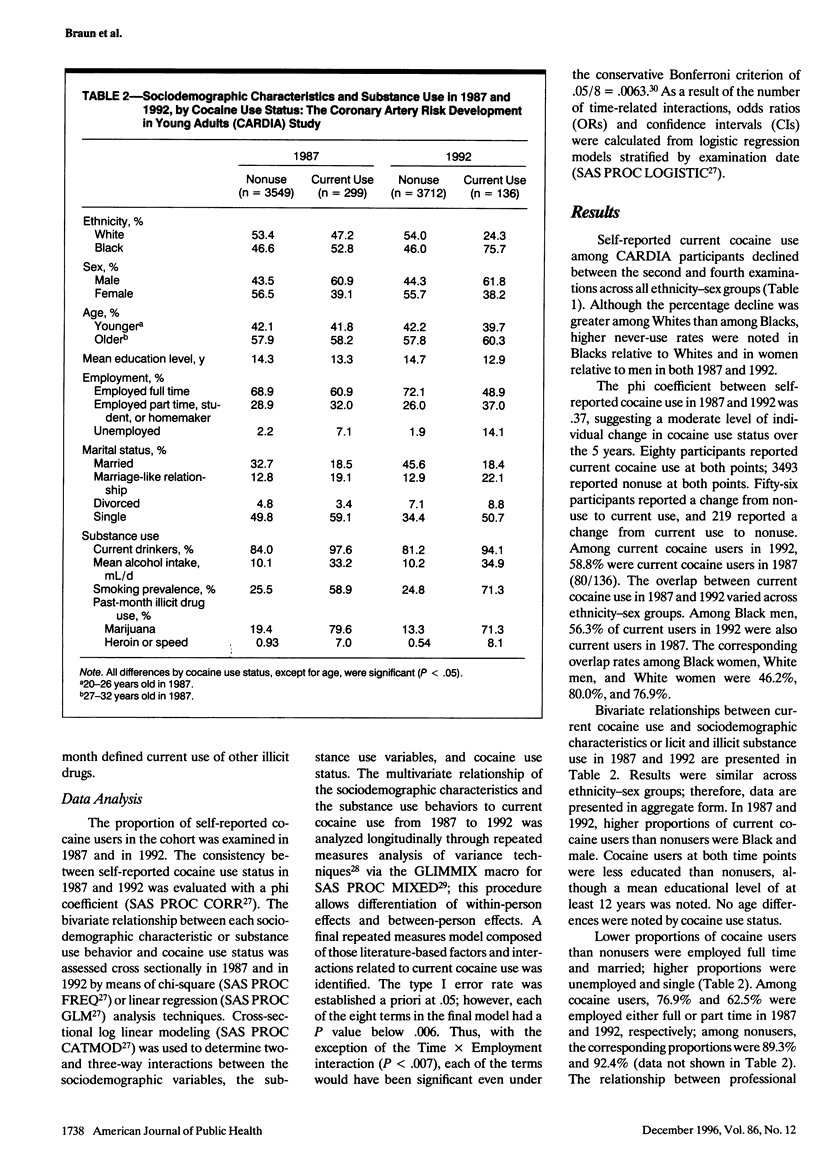
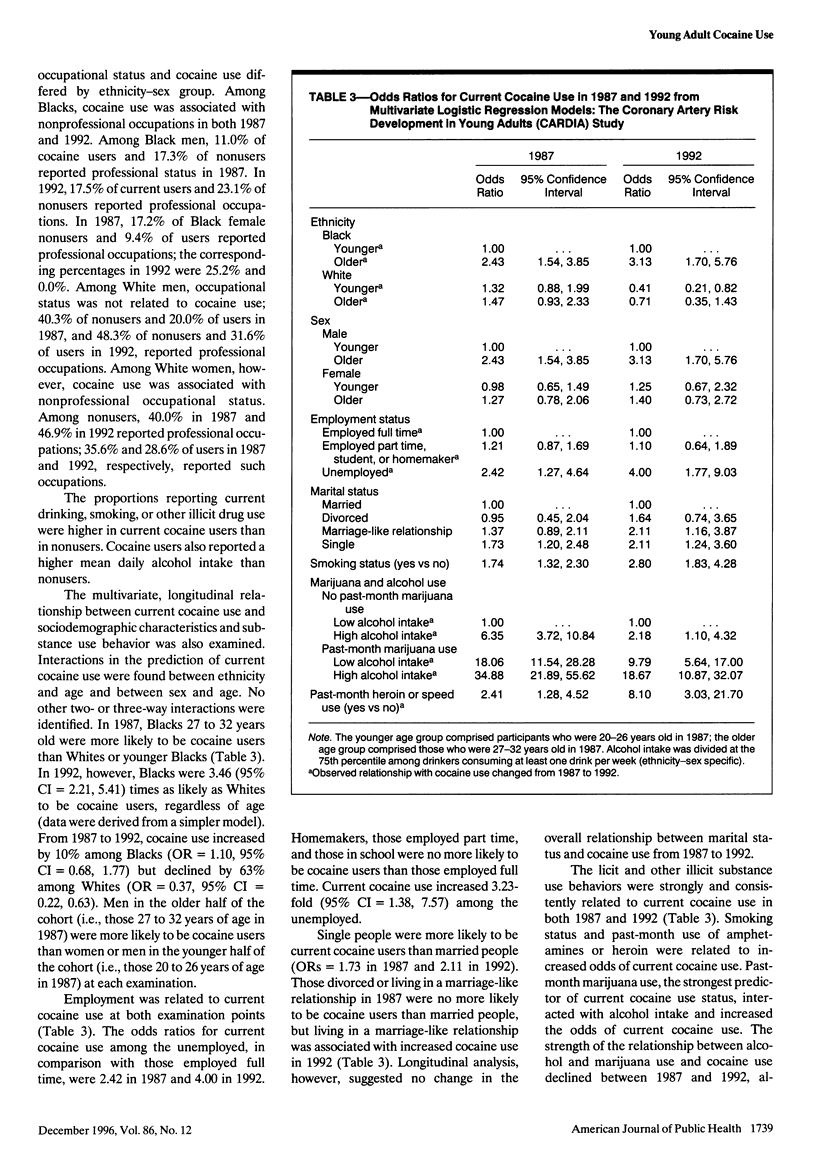
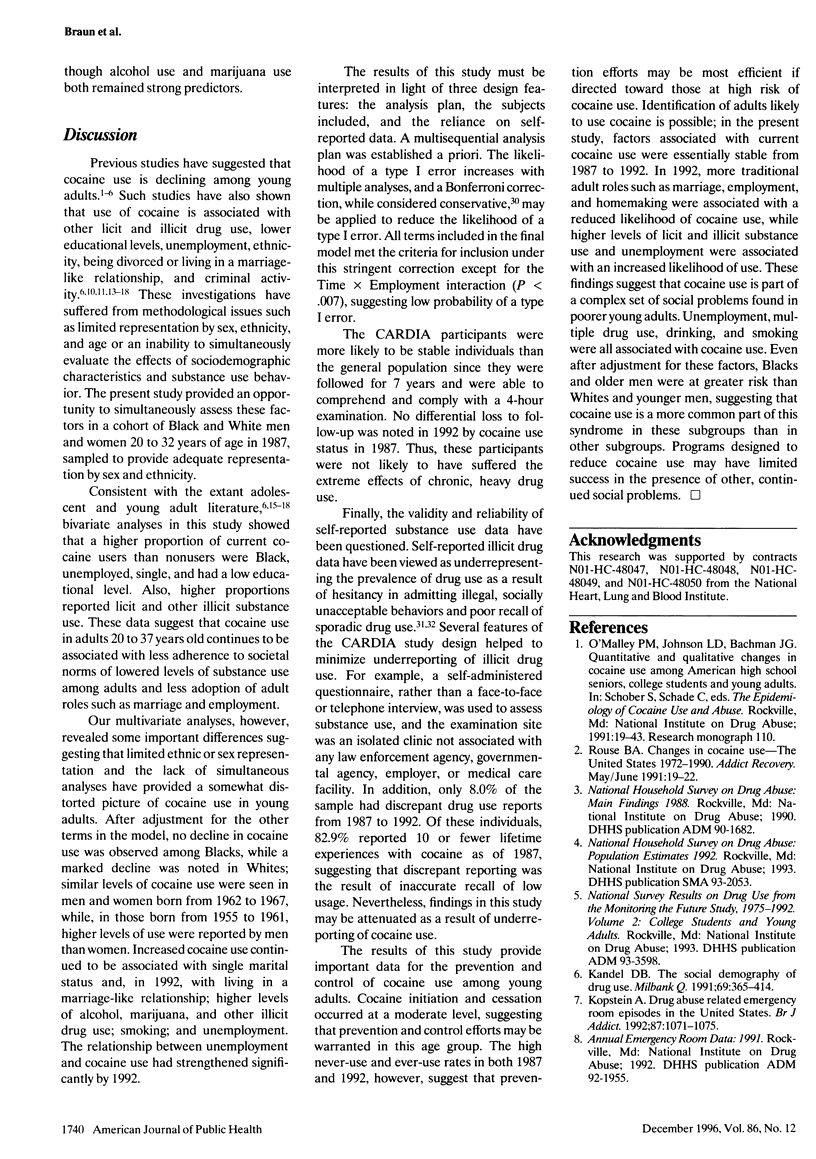
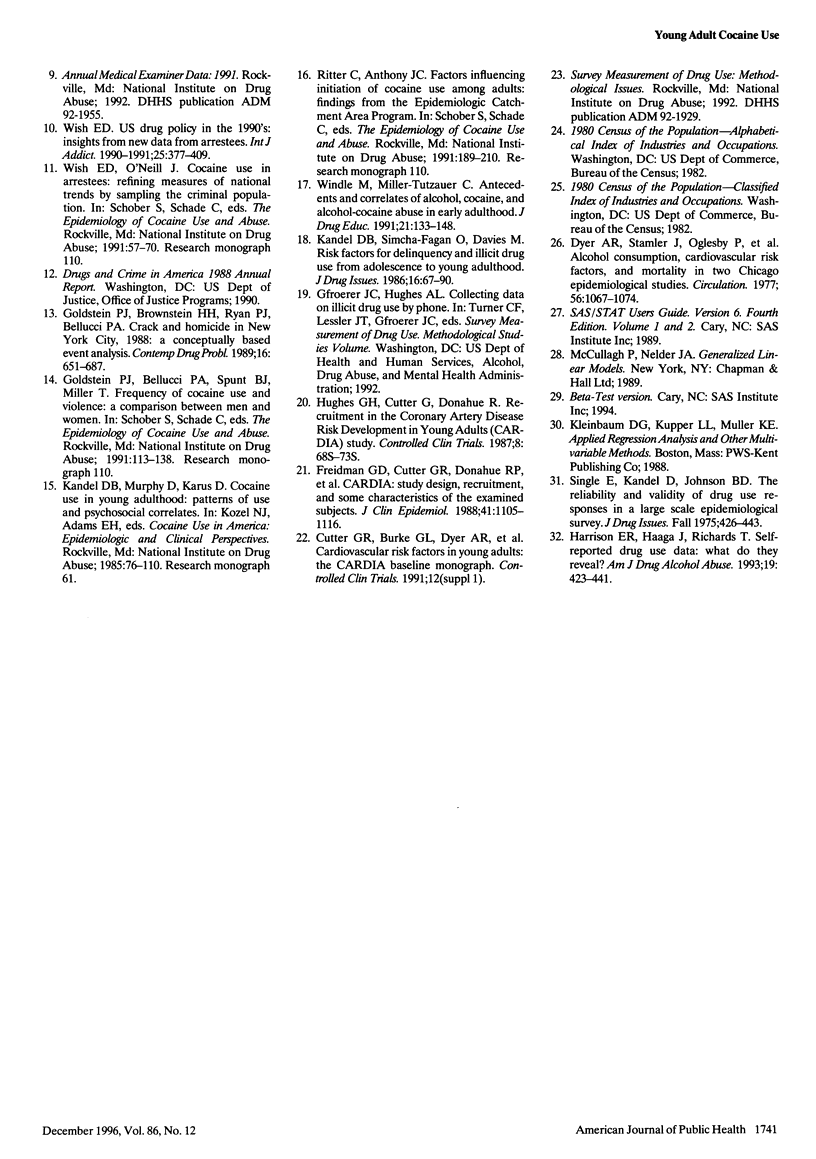
Selected References
These references are in PubMed. This may not be the complete list of references from this article.
- Dyer A. R., Stamler J., Paul O., Berkson D. M., Lepper M. H., McKean H., Shekelle R. B., Lindberg H. A., Garside D. Alcohol consumption, cardiovascular risk factors, and mortality in two Chicago epidemiologic studies. Circulation. 1977 Dec;56(6):1067–1074. doi: 10.1161/01.cir.56.6.1067. [DOI] [PubMed] [Google Scholar]
- Friedman G. D., Cutter G. R., Donahue R. P., Hughes G. H., Hulley S. B., Jacobs D. R., Jr, Liu K., Savage P. J. CARDIA: study design, recruitment, and some characteristics of the examined subjects. J Clin Epidemiol. 1988;41(11):1105–1116. doi: 10.1016/0895-4356(88)90080-7. [DOI] [PubMed] [Google Scholar]
- Harrison E. R., Haaga J., Richards T. Self-reported drug use data: what do they reveal? Am J Drug Alcohol Abuse. 1993;19(4):423–441. doi: 10.3109/00952999309001632. [DOI] [PubMed] [Google Scholar]
- Hughes G. H., Cutter G., Donahue R., Friedman G. D., Hulley S., Hunkeler E., Jacobs D. R., Jr, Liu K., Orden S., Pirie P. Recruitment in the Coronary Artery Disease Risk Development in Young Adults (Cardia) Study. Control Clin Trials. 1987 Dec;8(4 Suppl):68S–73S. doi: 10.1016/0197-2456(87)90008-0. [DOI] [PubMed] [Google Scholar]
- Kandel D. B. The social demography of drug use. Milbank Q. 1991;69(3):365–414. [PubMed] [Google Scholar]
- Kopstein A. Drug abuse related emergency room episodes in the United States. Br J Addict. 1992 Jul;87(7):1071–1075. doi: 10.1111/j.1360-0443.1992.tb03125.x. [DOI] [PubMed] [Google Scholar]
- Windle M., Miller-Tutzauer C. Antecedents and correlates of alcohol, cocaine, and alcohol-cocaine abuse in early adulthood. J Drug Educ. 1991;21(2):133–148. doi: 10.2190/F497-8GKY-0U31-XMJJ. [DOI] [PubMed] [Google Scholar]
- Wish E. D. U.S. drug policy in the 1990s: insights from new data from arrestees. Int J Addict. 1990;25(3A):377–409. doi: 10.3109/10826089009071049. [DOI] [PubMed] [Google Scholar]


